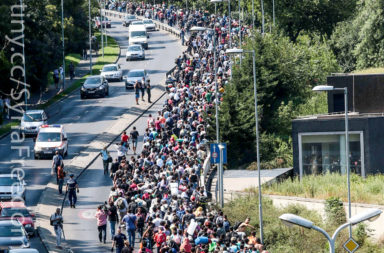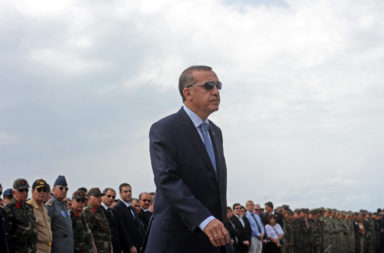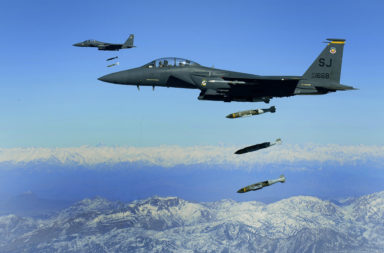Here in Iraq is Kurdistan.
I visit disputed Kirkuk to learn more about the Kurds, their position within Arab Iraq and their fight against ISIS and the dominance and arrogance of the Shiite majority in Bagdad.
What is the base for their desire for independence? Let’s have a look:
UN Resolution 1966
According to the UN Resolution 1966 which was ratified and became applicable in 1977, every nation has the right to self-determination. Why NOT for the Kurds?
This text of “The United Nations International Covenant on economic, social and cultural rights,” known as a pact between people, has the following definitions:
Article 1
1. All peoples have the right of self-determination. By virtue of that right they freely determine their political status and freely pursue their economic, social and cultural development.
2. All peoples may, for their own ends, freely dispose of their natural wealth and resources without prejudice to any obligations arising out of international economic co-operation, based upon the principle of mutual benefit, and international law. In no case may a people be deprived of its own means of subsistence.
3. The States Parties to the present Covenant, including those having responsibility for the administration of Non-Self-Governing and Trust Territories, shall promote the realization of the right of self-determination, and shall respect that right, in conformity with the provisions of the Charter of the United Nations.
At the German Bundestag
On 1st September 2014, a majority of deputies approved the plans to supply the local government of Kurdistan (KRG) with weapons at a special meeting of the German Bundestag, in order to counter the push of IS, particularly the armored vehicles. On this day, I was at the official gallery of the Bundestag, being the chairman of the Central Council of Oriental Christians in Germany at that time. When asked for my opinion whether this was the right decision, I just could agree with a clear “Yes”.
More than a year later I was able to get a better idea of the situation during my visit in the autonomous region of Kurdistan. In one of my stops at the IS front line at north-west of Kirkuk, I met Dr. Kemal Kirkuki, former chairman of the local government of Kurdistan who is responsible for public relations of the KDP and who is a convinced Peshmerga and freedom fighter since childhood.
After our conversation and the visit of the conflict sectors, I would endorse the delivery of arms without thinking twice, especially because of my official position as an ambassador of peace of the Central Council of Oriental Christians in Germany. To speak plainly: as a trained soldier and witness of the worst atrocities I know the consequences of the different kinds of weapons. In relation to many of my fellow humans I am aware of the devastating harm that can be caused by a weapon in the hands of a human.
But even worse harm is caused by those who delight in the slaughter of others and do not come to an end any more. Who don´t back off wiping out whole nations, cultures and religions from the face of the earth. And the Islamic State is doing just this at the moment, with its indoctrinated and murderous fighters.
Yes, war never can be a solution. But being overrun would cause other disasters that no sensible person could accept, especially if you know the threat you have to face. In an interview with Dr. Kemal Kirkuki we went into various aspects of the conflict and its consequences for the entire Middle East that will change the face of the region.
Sykes – Picot – Agreement and the mistakes of the past
On 16th May 1916, the governments of Britain and France decided secretly about the division of the colonial areas in the Middle East which should take place after the defeat of the Ottoman Empire, the “sick man of Europe”.
Later, Italy and Russia were also involved in this agreement. But because of the October Revolution of 1917 was no longer included in the plans, the Russian Empire brought parts of the agreement to public. Uprisings in the Arab world have been the result. Nevertheless, arbitrary borders were drawn within which whole tribes and peoples have been divided up on different areas according to the power interests of the colonial masters.
This also happened to the Kurds, along with other indigenous peoples such as Oriental Christians (Armenians, Assyrians, Arameans, Chaldeans) or the Yazidis, whose original settlement area is located in today’s South-East of Turkey, in Iran, in the North of Iraq and in Northern Syria.
Even before the secret Anglo-French agreement the victors of the First World War promised the Kurdish tribes autonomy. But however the successor state of the Ottoman Empire, Turkey, has been able to reverse this commitment and so the Treaty of Lausanne was signed. So the Kurds lost their claim of own independence.
Yet in 1922, London sent an Anglo-Iraqi declaration with the following text to the League of Nations:
“The Government of His British Majesty and the Government of Iraq acknowledge the right of the Kurds who live within the borders of Iraq, to establish a government within these boundaries. They hope that the various Kurdish elements will obtain agreement about the wanted governmental form as soon as possible and about the boundaries they want to live in. They will send envoys who will negotiate economic and political relations with Her Majesty’s Government and the Iraqi government.”
The rest is history. The Kurds witnessed their own genocide.
Since that time the Kurds are fighting for their independence. And they almost reached the goal of a free Kurdistan. Therefore, the fight against IS is the path.
IS has to be destroyed.
With these clear words I am welcomed before the commander of the sector, as he explains in an impressive presentation the tactical victories to me with which IS was pushed back bit by bit. Despite the initially worse armament of the Peshmergas, the years of experience of guerilla war was their benefit. Strategical important facilities such as water supply pipes, intersection roads, oil springs and so on were grabbed with air support and in coordination with the allied forces. The Peshmergas have been the combat units on the ground which were advancing coordinated. The shown strategy maps illustrated clearly that IS was initially cut off from supply routes and then surrounded. It emerged that the terrorist organization relied on two essential weapons. Firstly the religious indoctrination and so inspired by faith to purchase a ticket to paradise by death or suicide in what way ever; with this faith fanatics go to struggle much more vigorously and are prepared to take risks- already seeing paradise in front of them. The second powerful weapon is purely material in nature and feeds largely on Iraqi armory of American design, which has been left to IS by the Iraqi army without any fight. Bullet-proof and well equipped vehicles that burst through the enemy ranks and cause immense damage. Simple guns for example can´t achieve much against an immense armored Humvee, the military version of the well-known off-road vehicle. Armor-piercing weapon systems are needed therefor. The Milan 2 weapon system delivered by Germany which is able to break through up to 700 mm armor steel and has an accuracy of 93% has been of vital importance at the tactical defense against TNT-loaded crafts and other armored vehicles. Nine missiles have been fired. Nine times the target was hit. And this saved countless lives and the area could be recaptured.
We would be much ahead if we had better weapons
The fighting morale of the Peshmergas is enormous. This could always be seen during all the visits at the front line. In the end it is all about the borders of a future Kurdistan which are now drawn and could assure independence to the Kurds after 100 years. If you compare the will of these fighters with the motivation of the structurally weak and obviously unstable Iraqi army, you have to point out clearly that the Kurdish combat units that are subjected to Erbil by 100 %, which forms a reliable anchor. Without this, IS would have advanced further.
“However, we would have been much further”, so Dr. Kirkuki,” if we had been armed better.” So the particular demand for more anti-tank weapon systems that is expressed is understandable. The Milan 2 system seems to be the measure of all things, however it is available in too small numbers in the different sectors to move forward faster.
Kurdistan, Sunnistan, Shiistan …
Iraq as a uniform structure has failed and doesn´t have continued existence. Sunnis will never accept a Shiite government. And vice versa. Kurds will neither bow to a Sunni nor a Shia point of view. The divides and the violent past are simply too deep in mind as the gas attacks of Saddam Hussein against the Kurdish people will not be forgotten for a long time. Often the boundary between IS-supporters and ordinary people is blurred especially within the Sunni clans- who sympathizes with IS, who does not. It may happen that within one day the same clan supports Baghdad in the morning but in the evening IS. Only to change sides again at the next day. In this chaos it is better to leave it over to the particular ethnic groups and denominational clans to govern within their own structures. “IS with its ideology is deeply rooted in the Sunni clans and fed through the hatred for the Shiites,” the mid-fifties is continuing. The Kurds would prefer to stay out of this conflict.
Ethical Standards
War always has negative consequences. But there are standards that must be adhered strictly. “Fighters who are laying down their arms have to be considered as humans,” Dr. Kirkuki who has spent much of his lifetime at the front said. If the Kurds take prisoners they commit them to the court in Erbil. Their supply has to be ensured. Often he is not able to keep arrested IS-fighters, because he has to fear that relatives of the victims would take revenge. Therefore the immediate sending to an ordinary court in Erbil. Daesh how IS is called in Arabic slang doesn´t care less to this ethos. Especially as they even don´t have any problem with sacrificing civilians. While the allied forces and the Kurds are trying to protect those with their available options. The Kurdish local government has received 100.000 Arabic-Sunni refugees. Also more than 100.000 Christians and Yazidis. A total number of two million people in relation to a population of just a bit over 5 million.
The future of indigenous minorities – Christians, Yazidis, Turkmens ….
Those who cannot defend themselves, have to flee. This is the bitter truth. And particularly Christians and Yazidis had to run for their lives. As already mentioned there were over 100,000 Christians who fled to the local government of Kurdistan. At least as many Yazidis, too. So long as they have been able to escape the henchmen of Islamic State who massacred so many of them without reason. Including countless children and women. But how does their future look like now? Where is their place?
“Autonomy is an option,” my interviewee said. Therefore, they must be able to form a majority. That has to be regarded as difficult due to the current situation. To ensure the remaining of the Christians for example, it is forbidden by law for Muslims to buy land from a Christian in Ankawa, the Christian district of Erbil. Unless you are also Christian. One of the measures to ensure that they will stay. But it will require much more after the rule to keep them permanently in their original regions, the Nineveh-Plains. The future will show whether they can exist with full rights in new democratic structures. Within the influence of an ultra-orthodox interpretation of Islam as Islamic State is practicing at the moment, this is not and never will be possible.
The relationship with Turkey
Right here the differences between the PKK / PYD conducted Kurds in Turkey and Syria and the KDP (also called PDK) in Northern Iraq can be seen. The local government of Kurdistan is now economically related with the neighbors closely or at least partially. It is important to maintain a balance, but also to keep the interests of a future independent Kurdistan. Especially the brothers in Syria shouldn´t be let down, particularly in the shadow of the resurgence of the Kurdish conflict in Turkey. In this case there can only be a diplomatic and peaceful solution. One option for example would have been if the pro – Kurdish HDP in Turkey would have shown the will to form a coalition with the AKP, the democratically elected and strongest party in the neighboring state. To disregard this as one possibility of many others was a mistake, Dr. Kirkuki suggested. IS is a problem that has to be approached from all sides as quick as possible. Considering the situation that they implant their ideology into the minds of the younger generation, all should pull together in order to put an end to this as soon as possible. Turf war only costs resources on all sides, having countless unnecessary victims as result. At this point the experienced Peshmerga calls upon all sides to return to the negotiating table to find a peaceful solution for all.
The future
There is no doubt on the fact that the geographical picture of Middle East will change. Also on the fact that an independent Kurdistan will find place there. At the front line I had the opportunity to speak with female and male soldiers. One of my companions who translated into English has recently lost his left arm. But this doesn´t prevent him from fighting for the “Kurdish cause” he emphasizes. An own state. IS is seen in defensive. It already has reached its peak. It will not be able to hold, because the ideology does not allow that and it has lost clout. It depends on the will of the Western partners. If they want it, IS could be pushed back quickly. The question is about what comes then. And it concerns not only territorial borders. Every piece of land, every street, every house IS left is mined. Likely there are more Peshmergas who became victims of mines than those who have fallen in battle.
But in addition to the combat units of the Kurds, it is primarily economic developments coupled with political stability that enable the Kurdish local government to tackle IS and other extremists. In this context the region requires especially economic and political support from the West next to the already mentioned armament supply.




